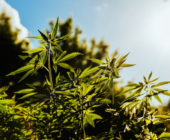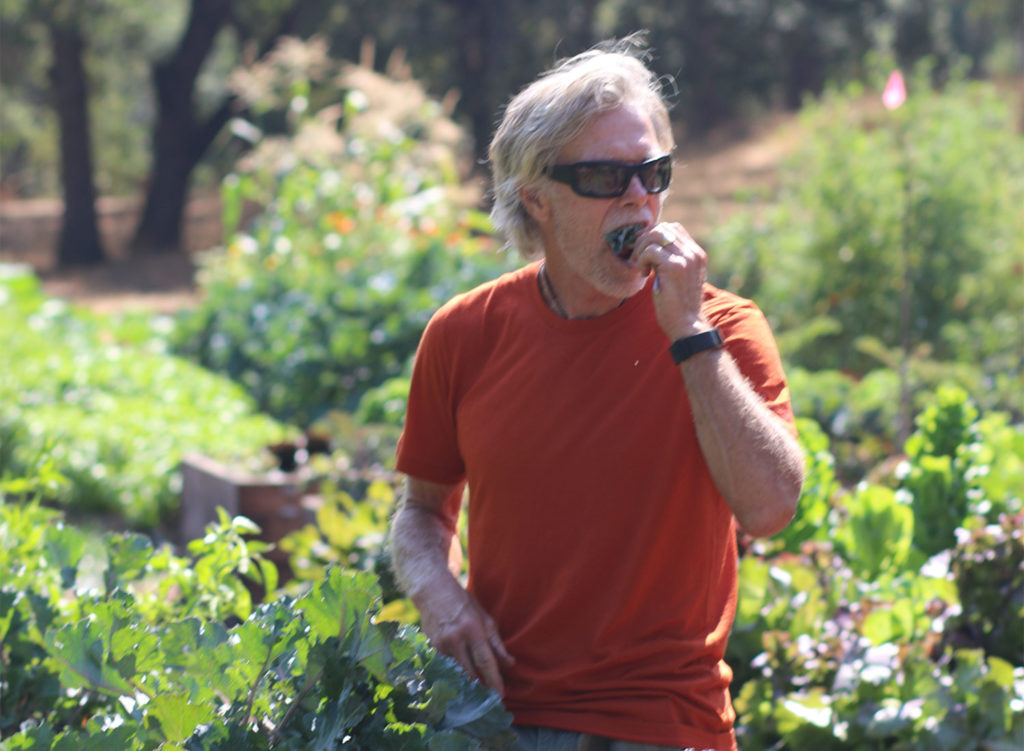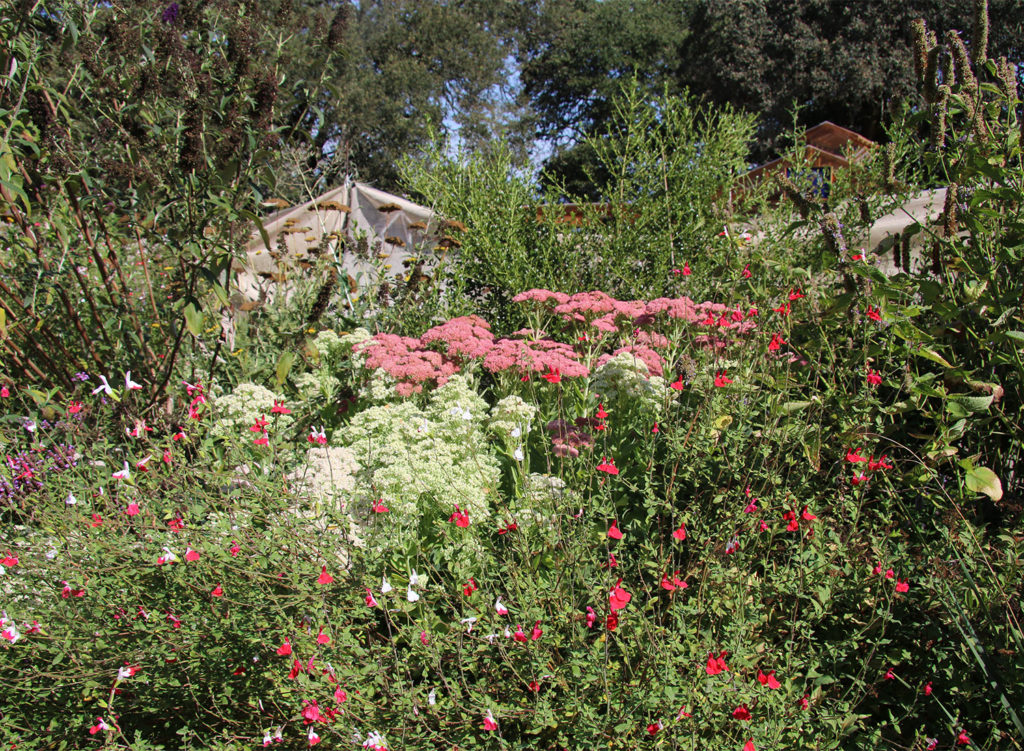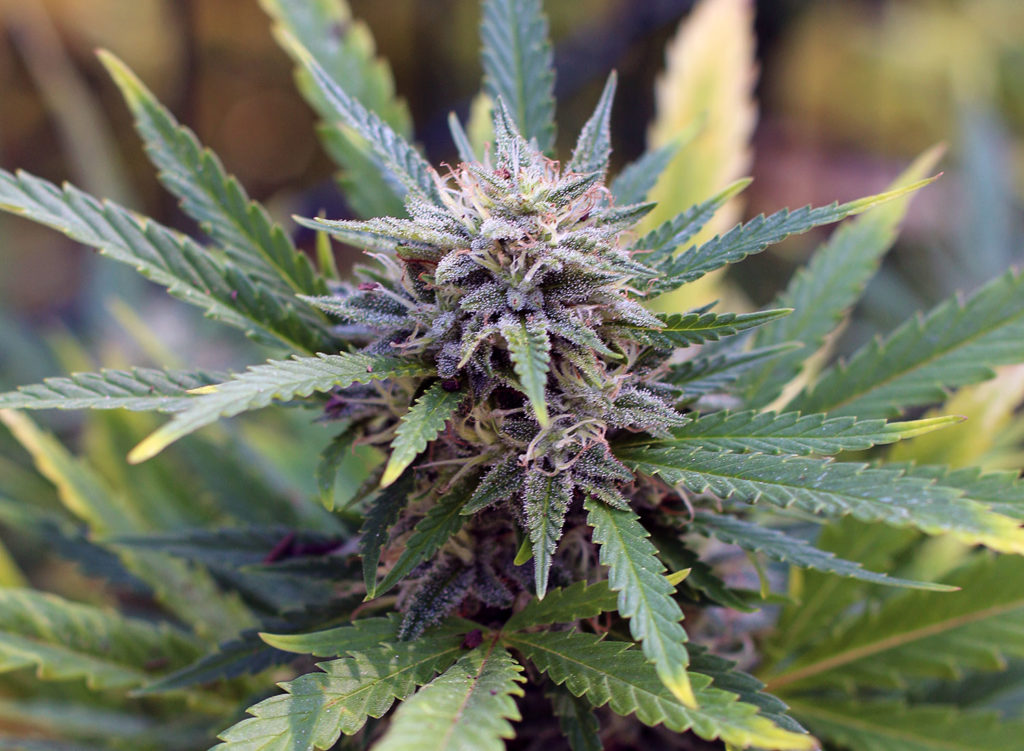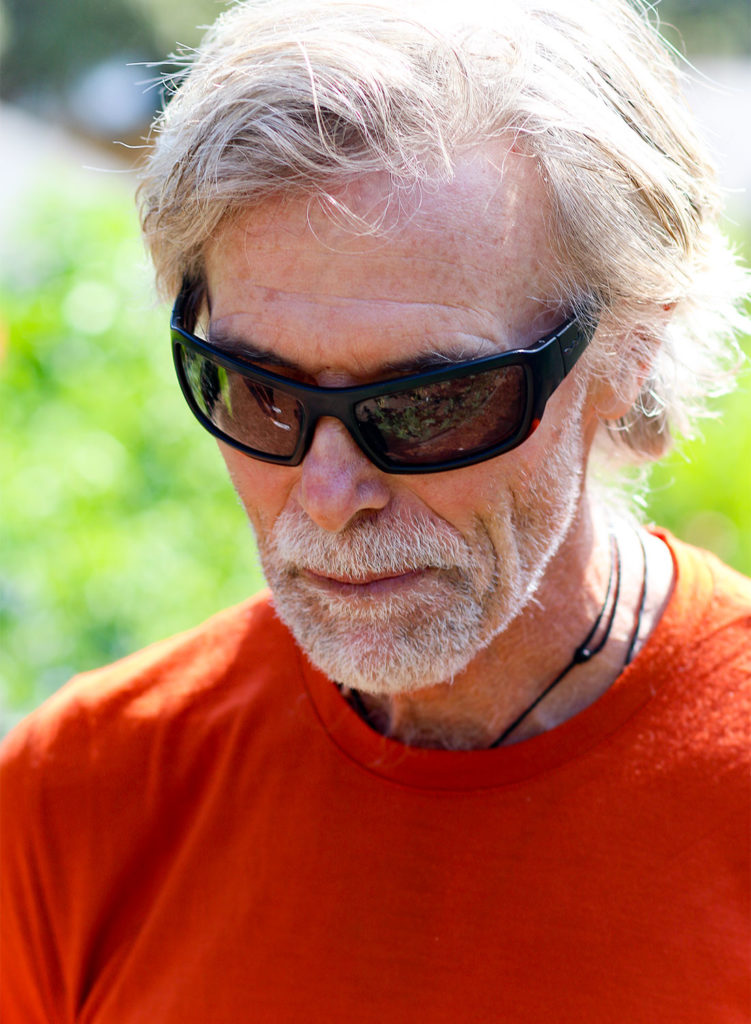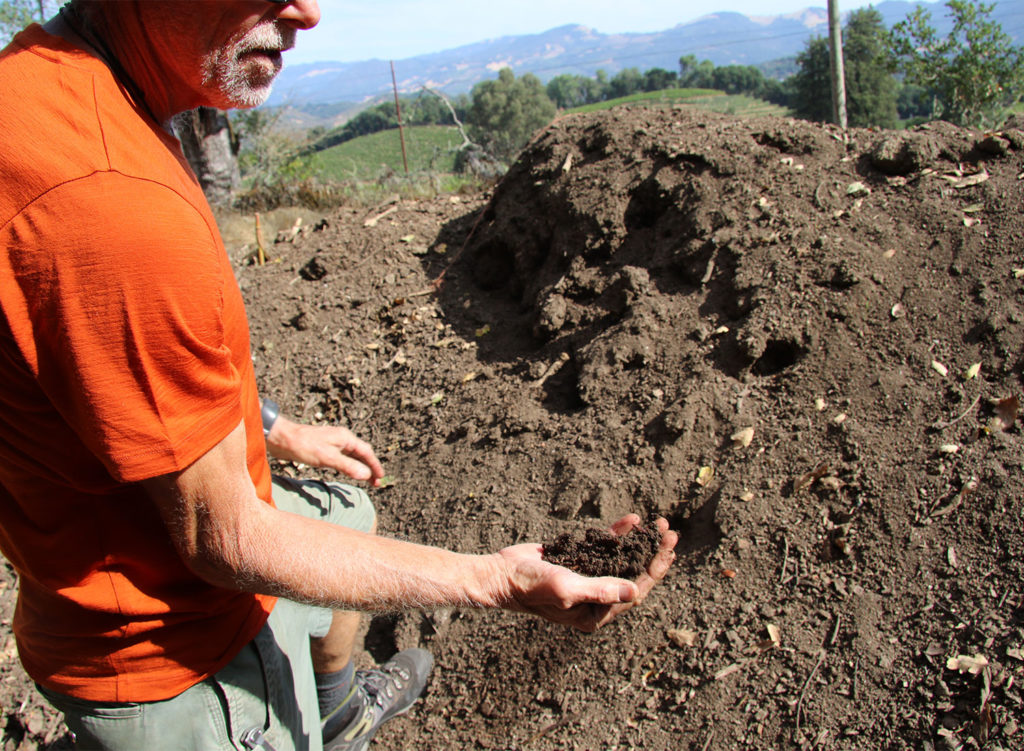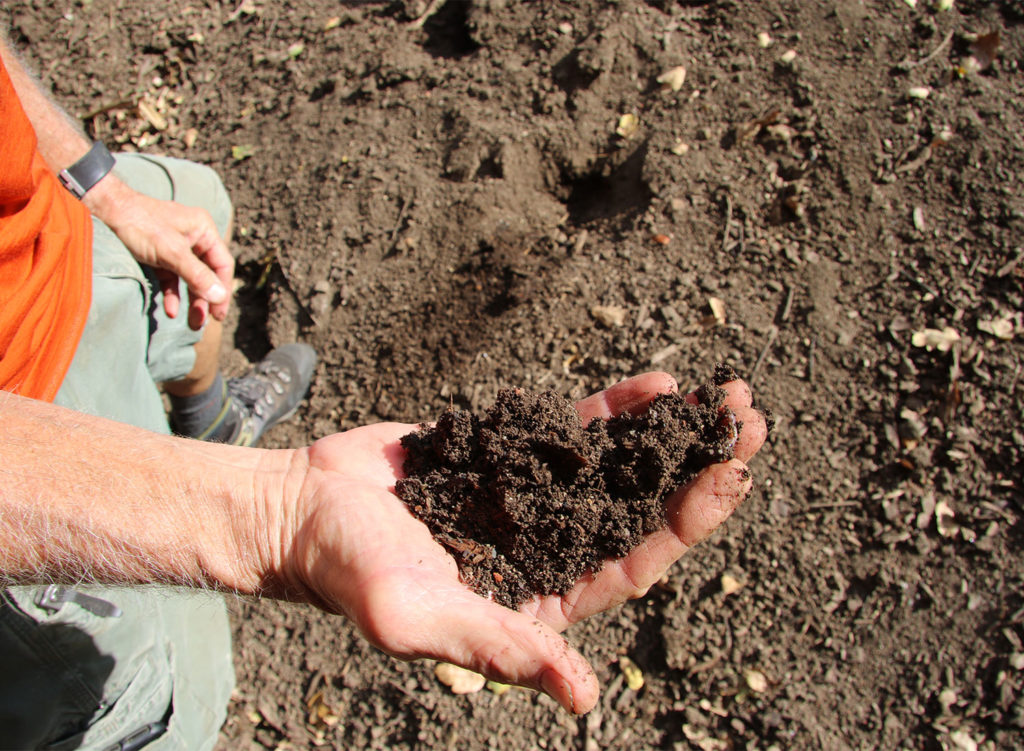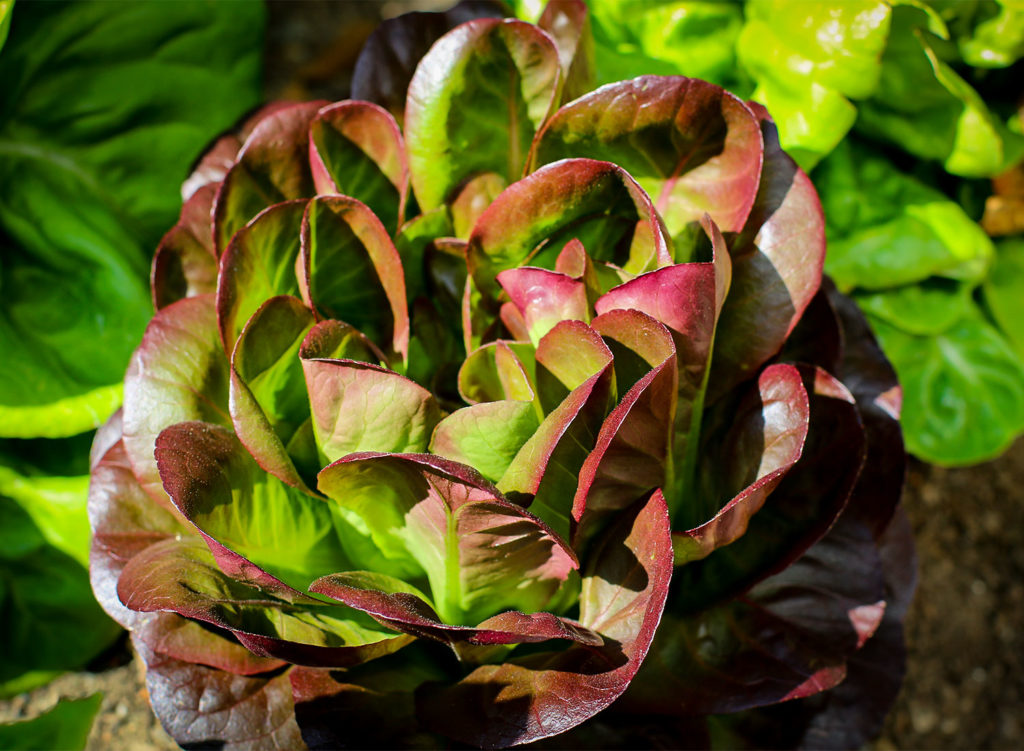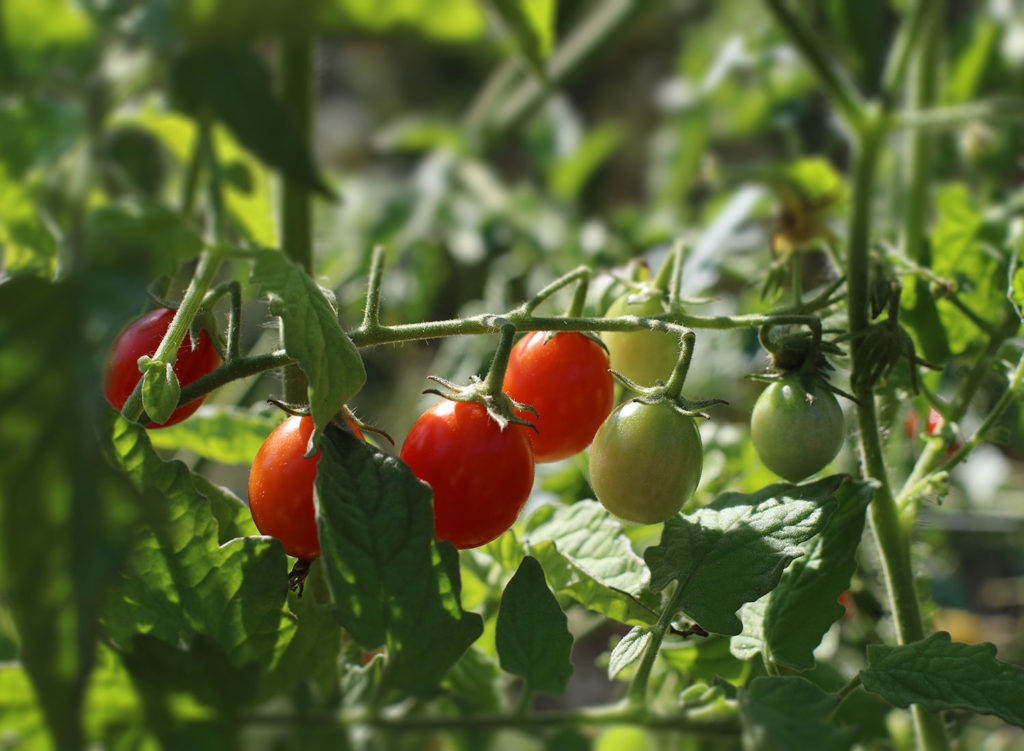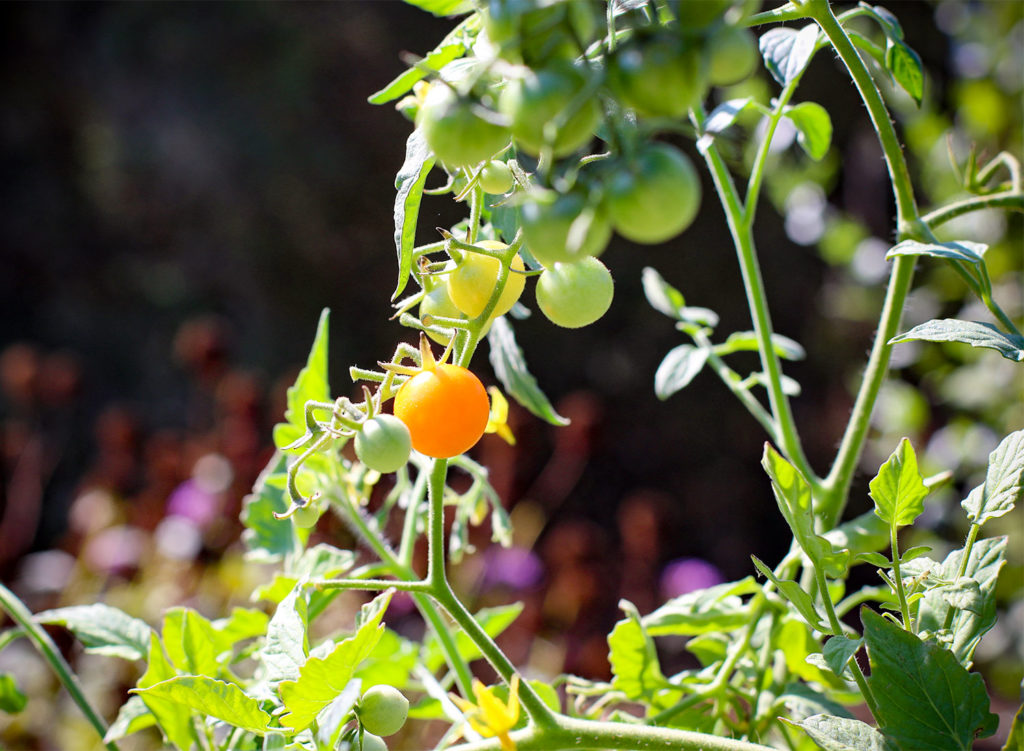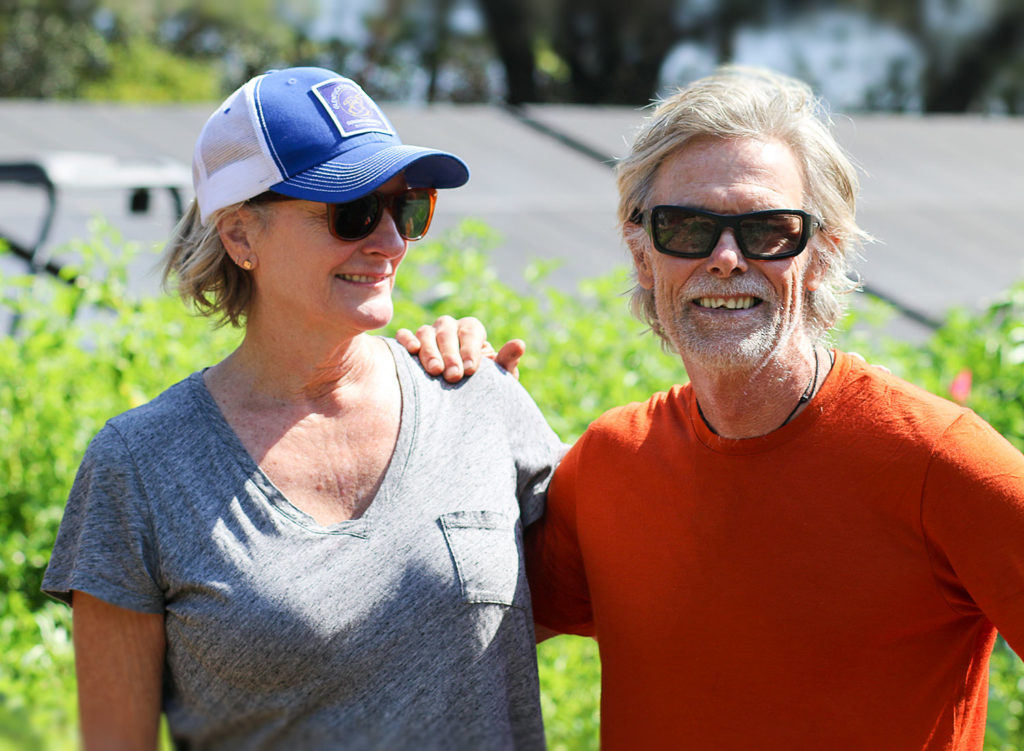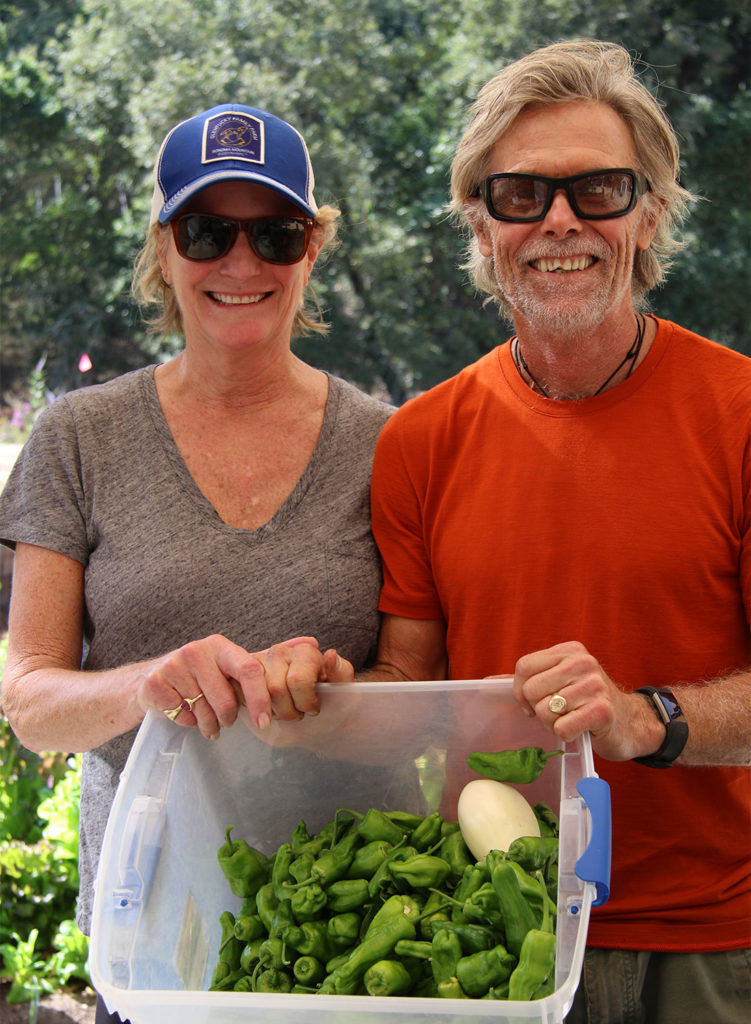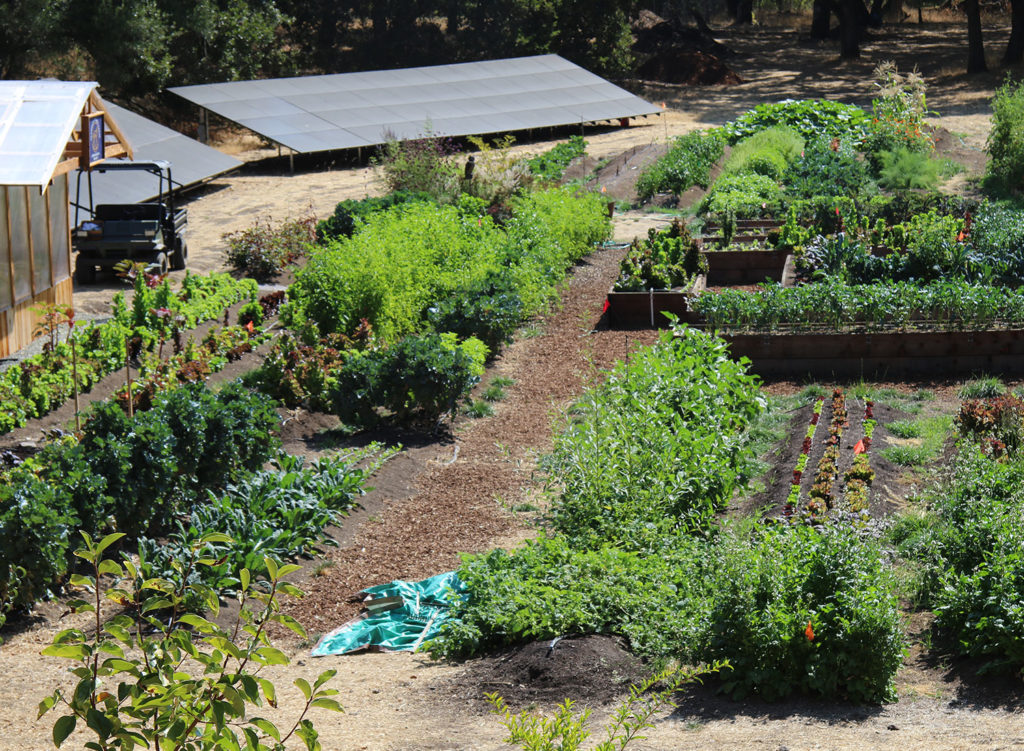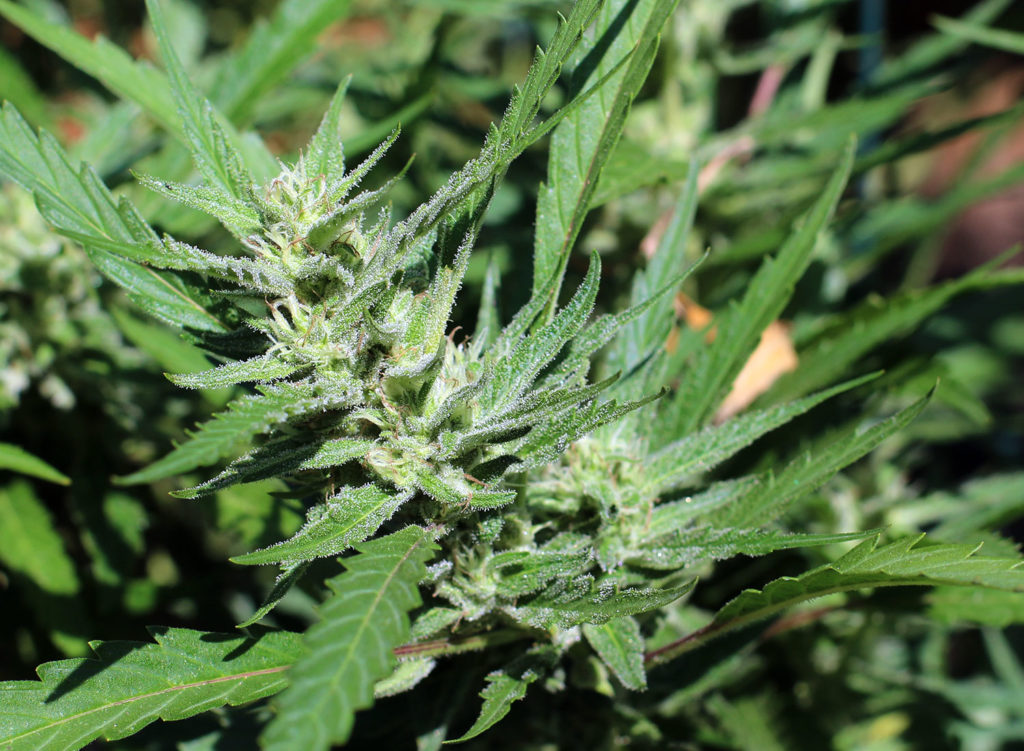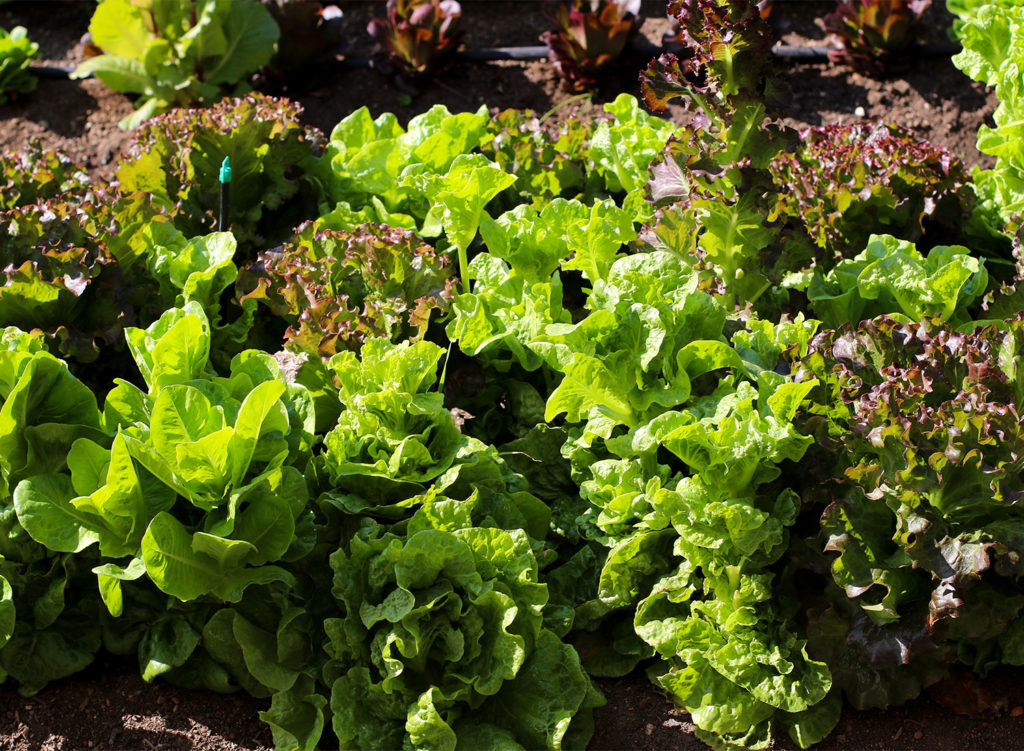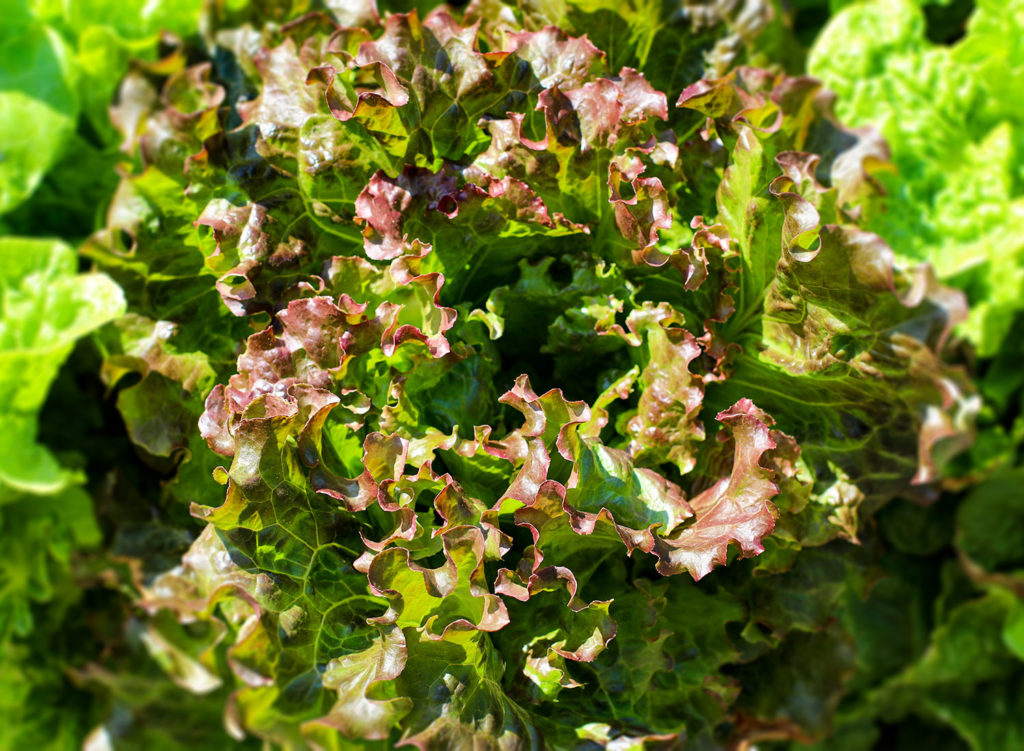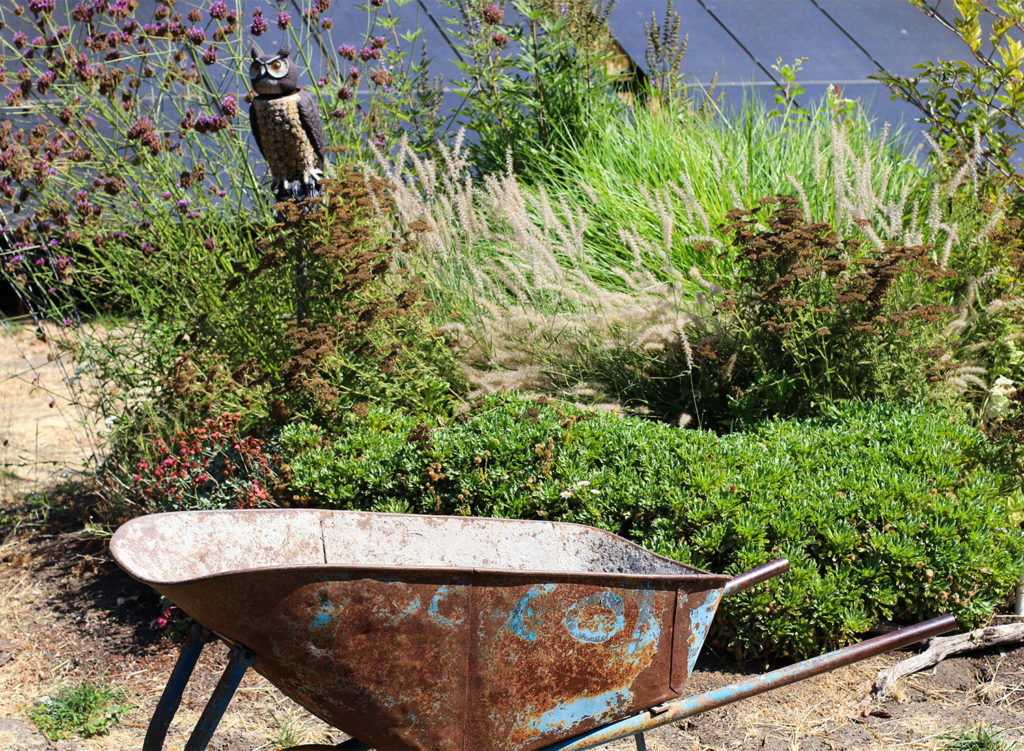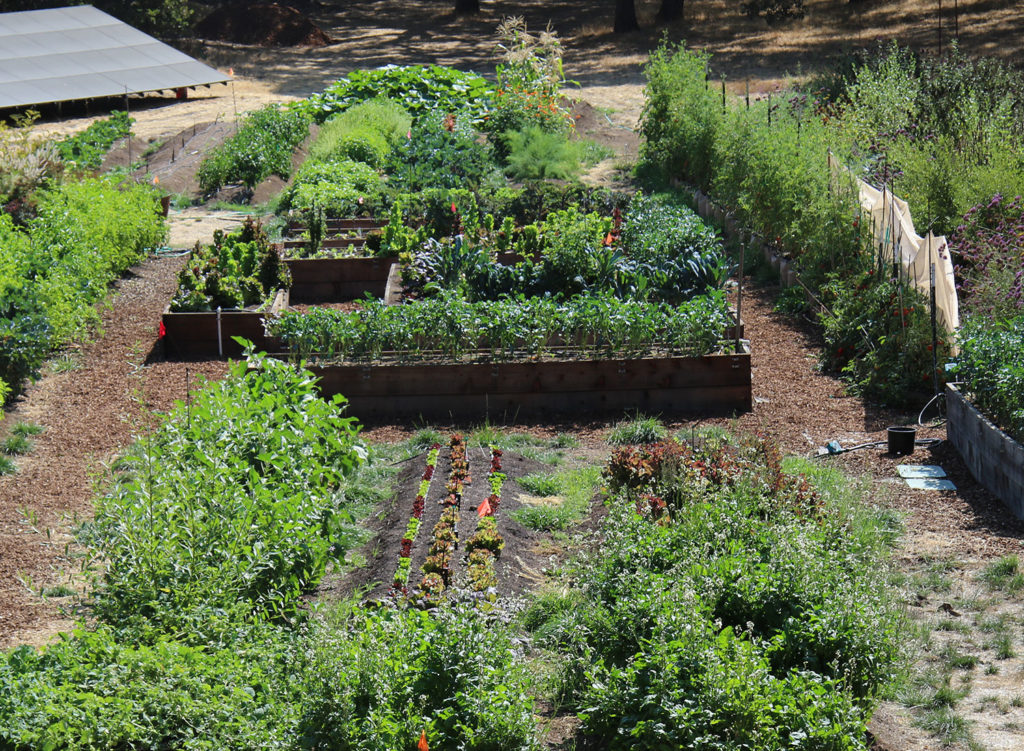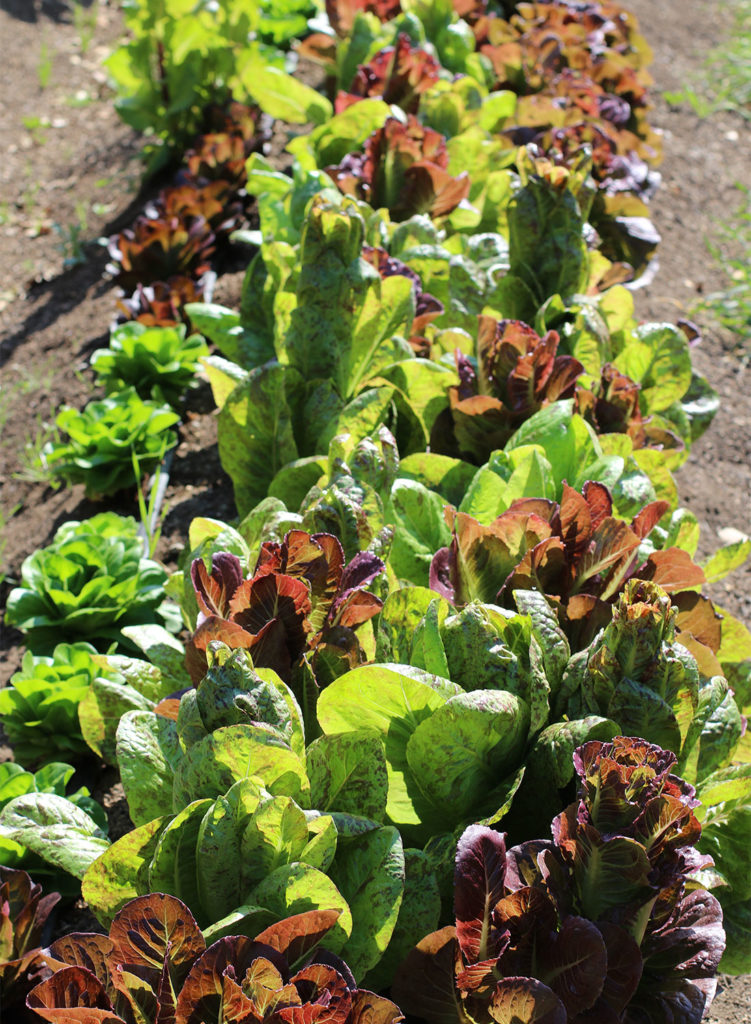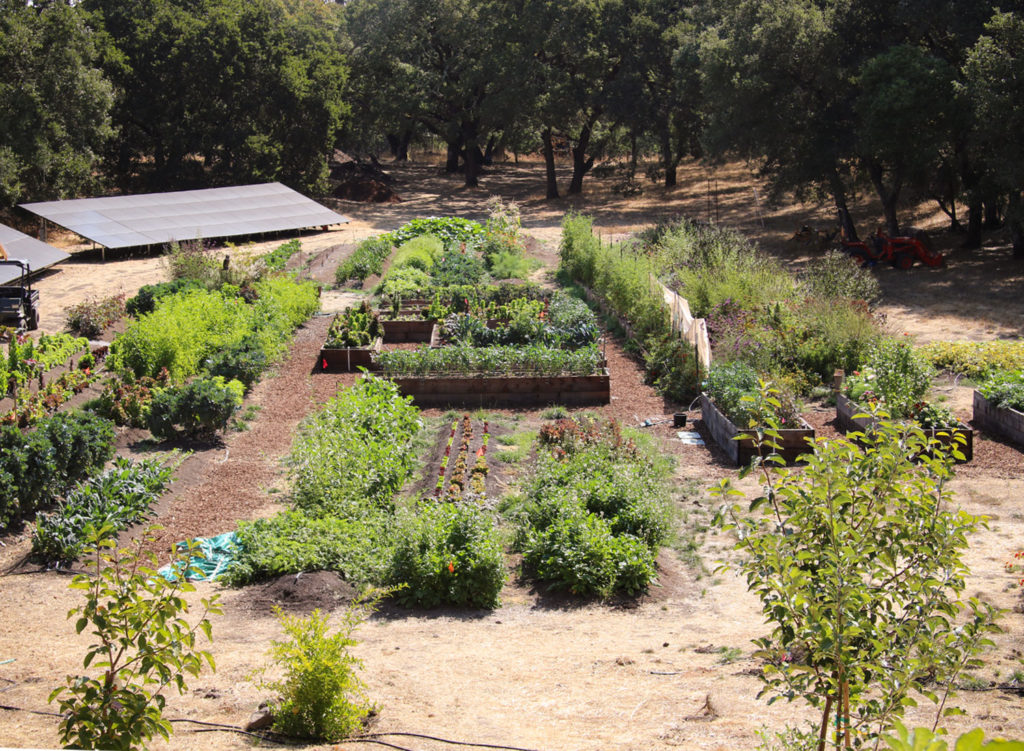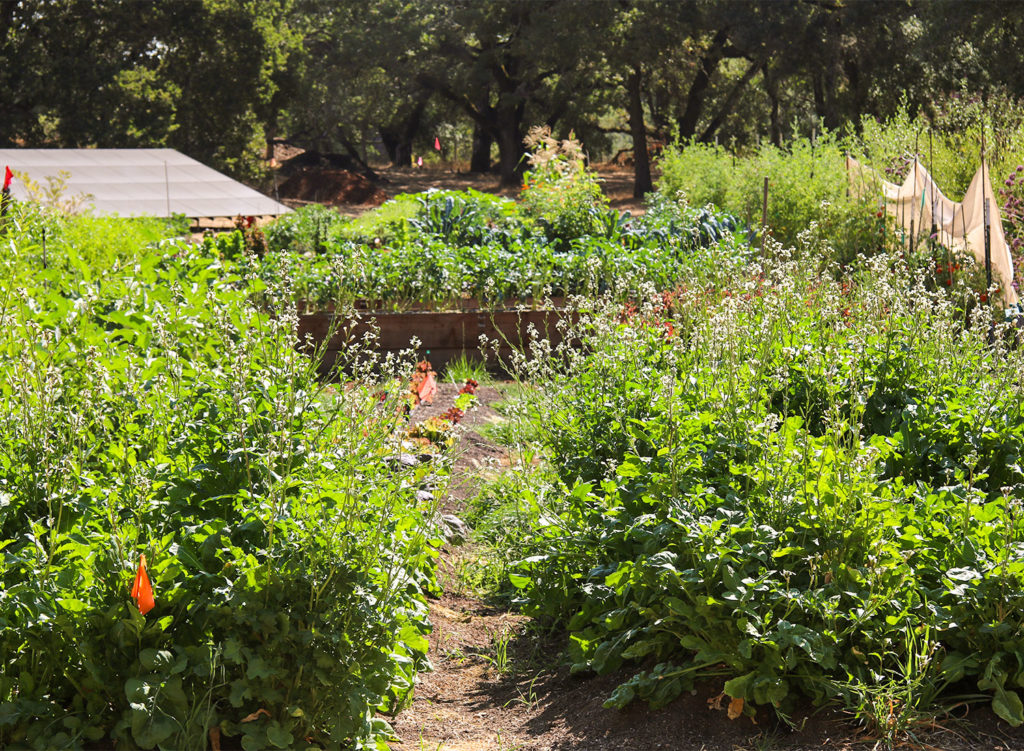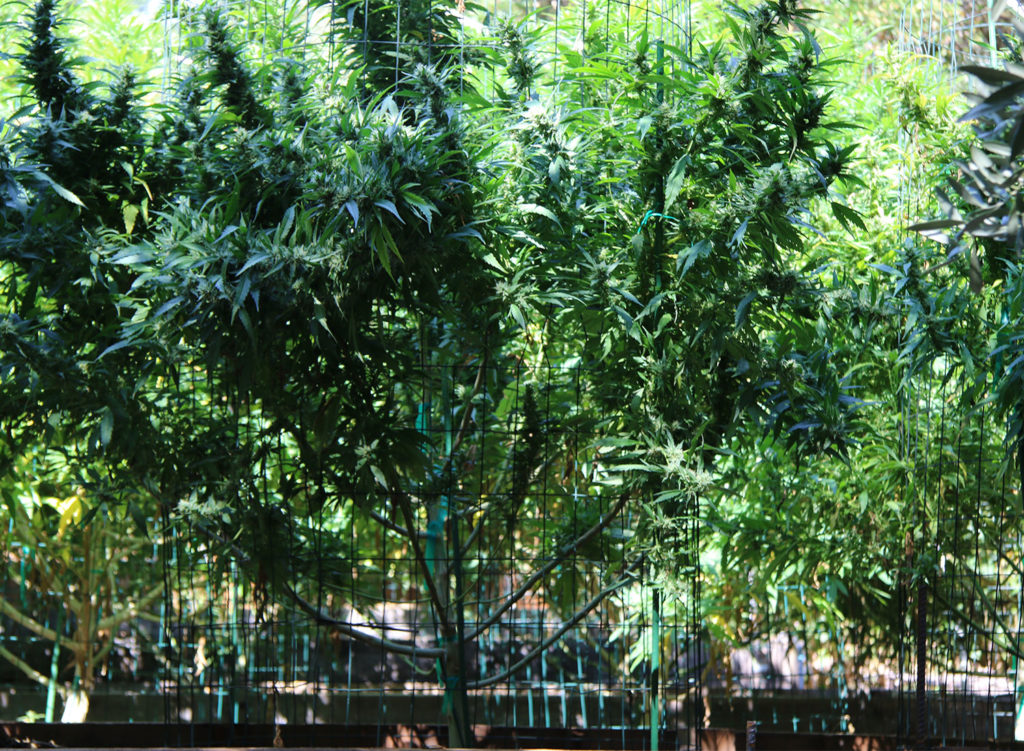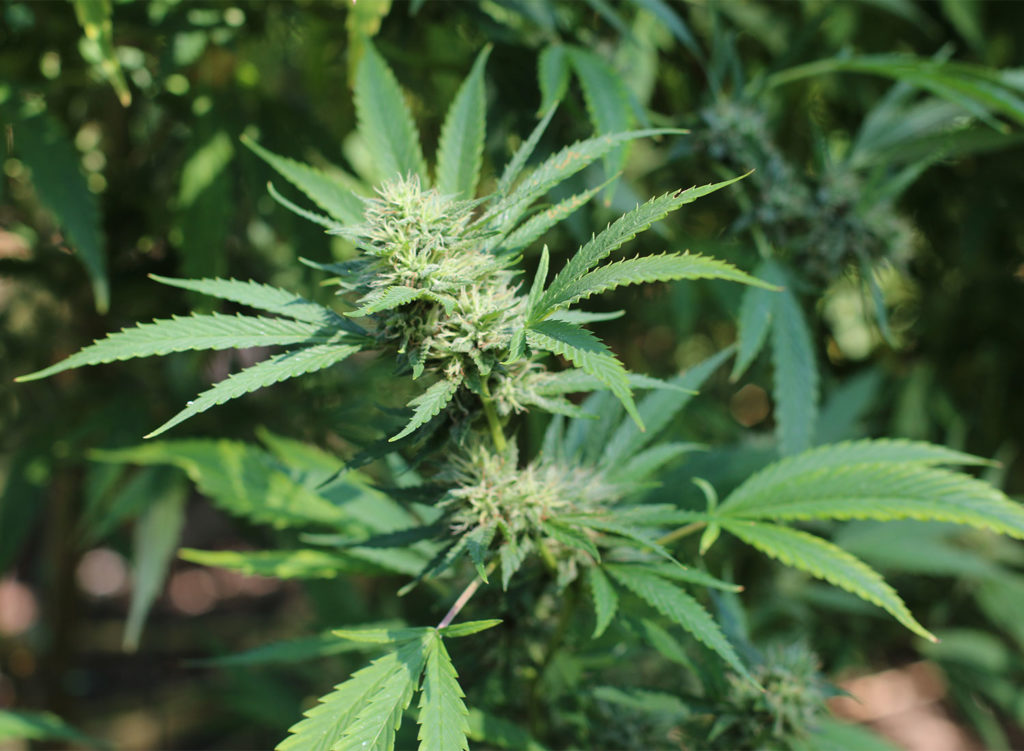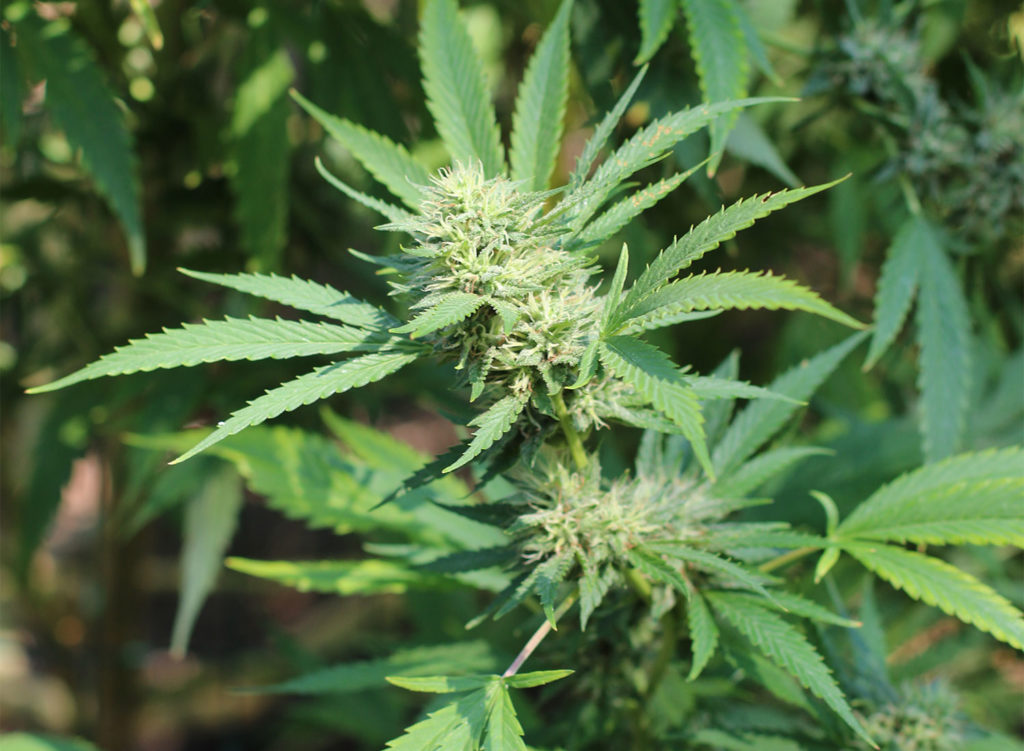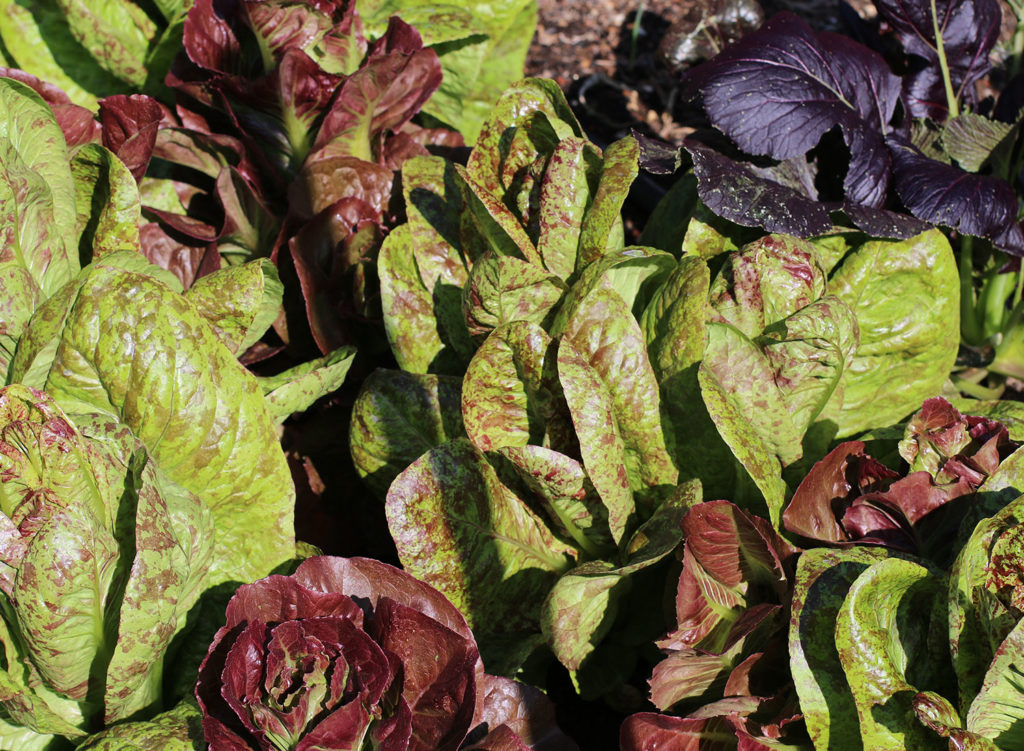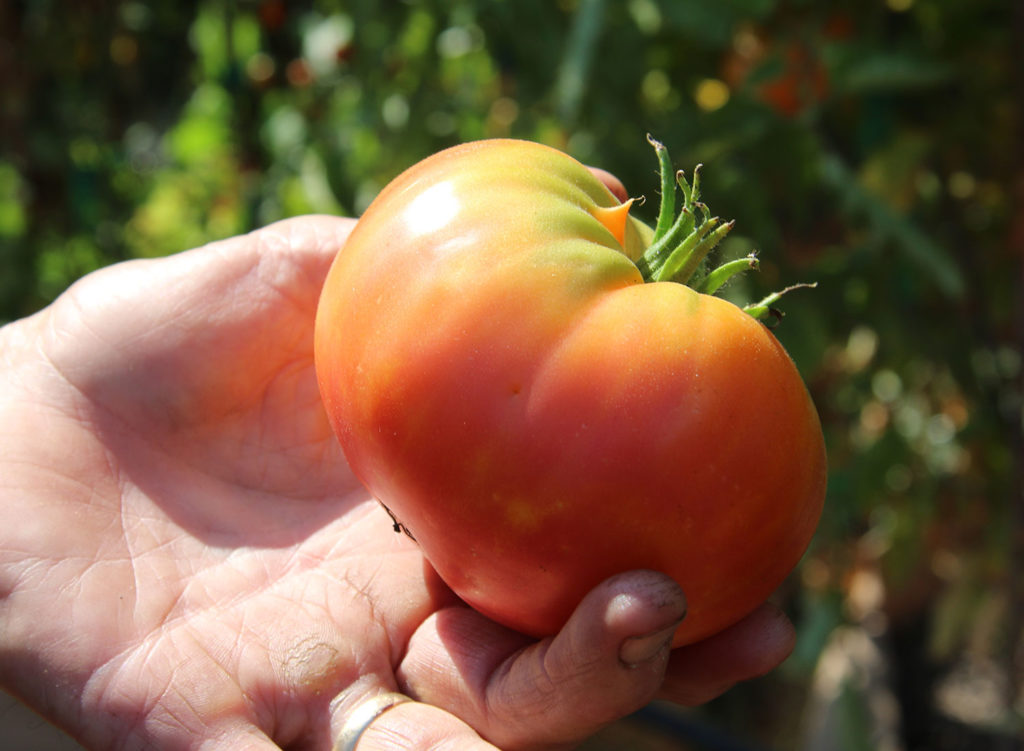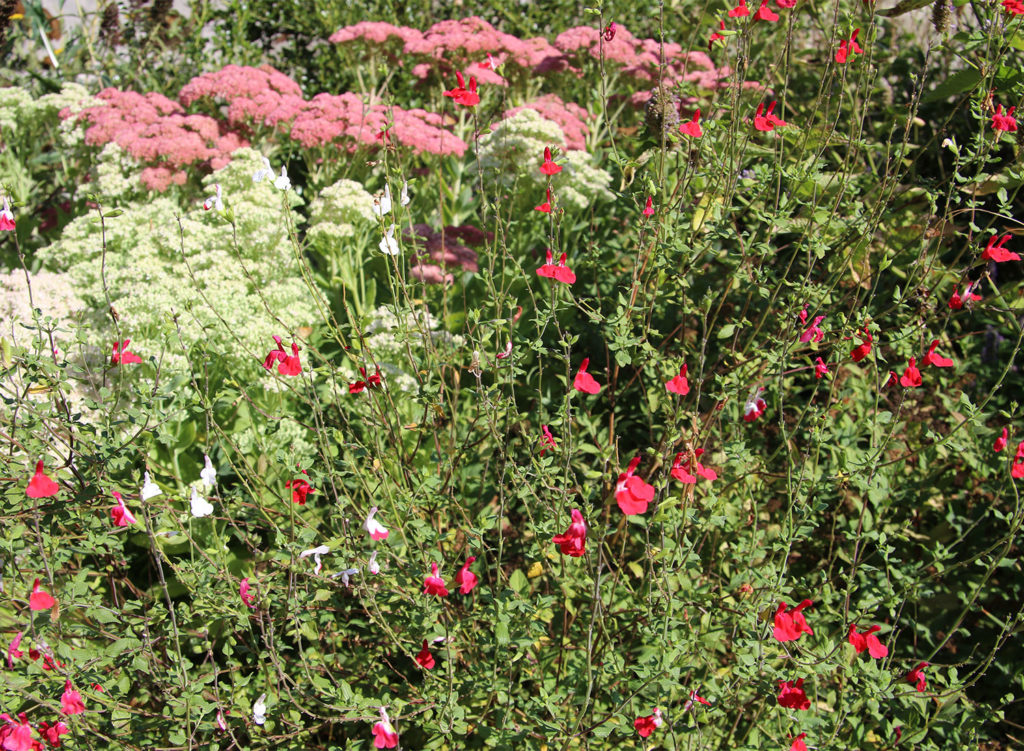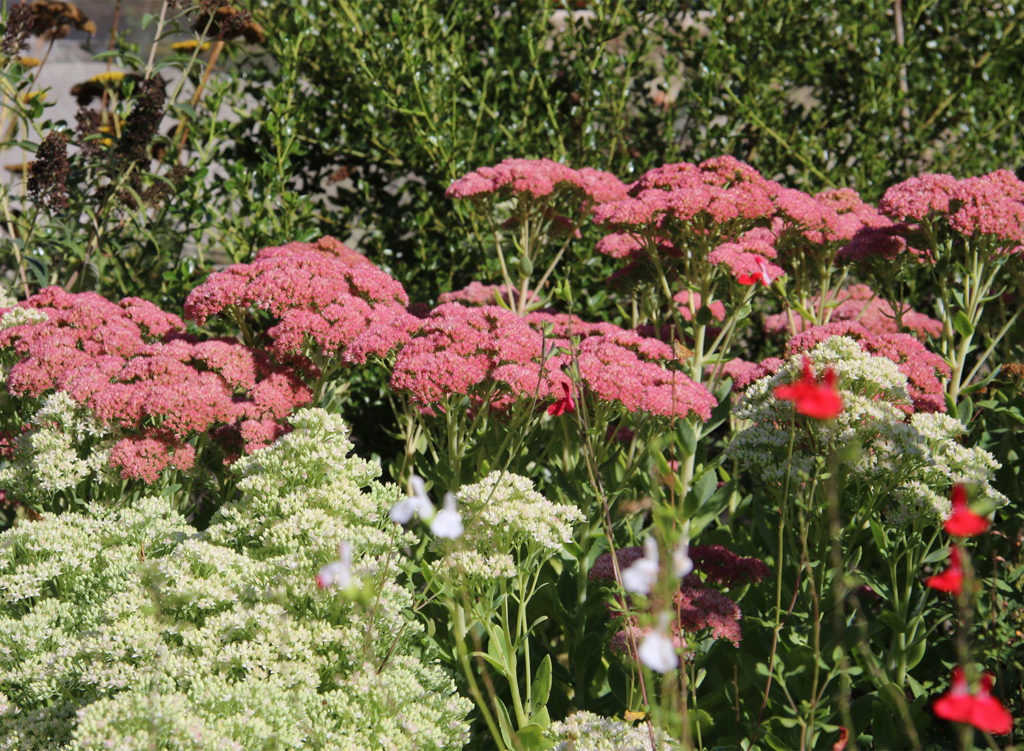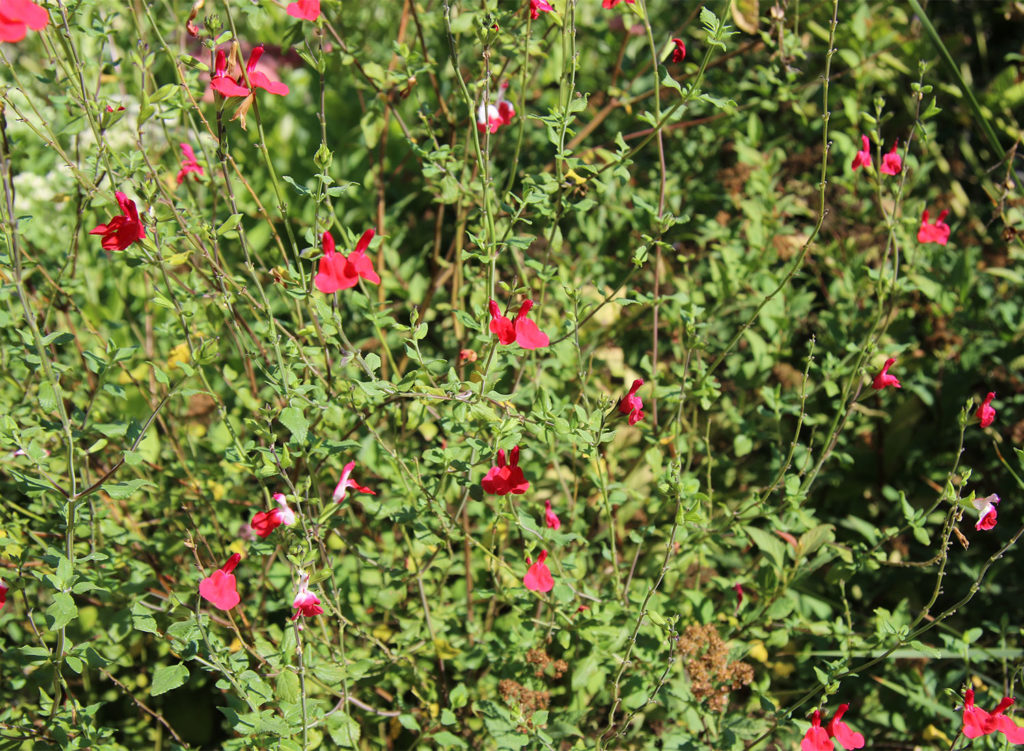When Mike Benziger sold his family’s 85-acre estate winery in Glen Ellen in 2015, his future wasn’t exactly clear.
Having been through two bouts of cancer in 2009 and 2011, Benziger walked away from his life’s work in the wine business to focus on his health, something he’d rarely thought much about before.
“Everyone takes health for granted until you don’t have it,” said the 66-year-old. “I’d never been unhealthy in my life. When I had a disease it was a real eye-opener.”
But he also saw an opportunity. As a champion of biodynamics — a hyper-intensive style of sustainable agriculture — the longtime Sonoma Valley vintner pivoted to a different sort of farming: Plants that could be used as medicine.

Mike Benziger of GlenTucky Family Farm in the Sonoma Valley grows biodynamic cannabis and food for healing. Heather Irwin/Emerald Report
“Every plant has a job,” Benziger says, overlooking his Demeter-certified biodynamic farm. Bursting with lettuces, tomatoes, peppers, eggplants, beans, flowers and fruit trees, his GlenTucky Family Farm has become synonymous with some of the most pristine produce in the county. Much of it goes directly to his son-in-law Ari Weisswasser’s restaurant, Glen Ellen Star. The rest he sells at farm markets or eats with his family and friends.
“I’m picking my lunch right now,” he says, standing between rows of lettuce.
But there’s another crop he’s becoming equally well-known for: biodynamic cannabis.
Though his compact 50-plant marijuana garden hidden in the Sonoma Valley is a fraction of the size of his eight-acre fruit and vegetable farm, more and more people are taking notice of Benziger’s new passion project. Especially since the apostle for unconventional farming practices believes he is a walking testament to the healing power of his plants.
The Plant Whisperer
After years of intense chemotherapy and radiation to combat bladder and prostate cancer, Benziger says he is now in remission. The treatments, however, left his body in ravaged. Though he claims to have used cannabis occasionally since his college days in the 1970s, he turned to the plant more seriously a few years ago to assist with side effects of cancer treatments.
“That stuff has an extended effect on your body. It just screws you up internally. It’s harder to digest food and being able to use cannabis settles the stomach and reduces anxiety,” he said.
Once at the forefront of biodynamic grape farming at his family’s winery in the Sonoma Valley, Benziger recently returned to working the land as therapy for body and mind.

Mike Benziger of GlenTucky Family Farm in the Sonoma Valley grows biodynamic cannabis and food for healing. Heather Irwin/Emerald Report
Biodynamics is best explained as “beyond organic” using sometimes quirky, but mostly intuitive techniques first introduced in the 1920s. Based on the teachings of Rudolf Steiner, biodynamics claims to be a “holistic ecological and ethical approach to farming, gardening, food, and nutrition,” according to the Biodynamic Association.
His Sonoma Valley produce farm is alive with birds, butterflies and helpful insects that are part of a carefully crafted ecosystem. It follows a strict calendar of planting days, harvesting days and resting days all dictated by cycles of the earth, moon and sun. The foundation to all this, however, is a massive pile of dirt.
Benziger leans over, shoves his hand inside and pulls out dark, black soil and a wriggling worm. He gently tosses the worm back into the pile and rubs his hands together. “There are more microbes in this handful of dirt than there are people on earth,” he says. This black gold has been carefully cultivated with farm compost and other biodynamic goodies to create the ultimate food for plants. “Feed the soil, not the plants,” he says, tossing the dirt back and rubbing his hands together.
A Healthier Outlook
Having lost 40 pounds since selling the winery, Benziger is noticeably thin, but sun-kissed and strong after long days on the farm.

Mike Benziger at his farm, eating lettuce. Heather Irwin/Emerald Report.
“I feel better than I’ve felt in years,” he says. “I spend most of the day with my wife, Mary, gardening, and what a gift. There isn’t an activity that has more rewards. Starting a new farm and new projects have helped me with healing and energized me. When you’re in a place where you can get good energy, with being around good people in a good environment, that’s the best healing process you can do.”
Mary, who runs the farm with Benziger, is a collaborator in his new project. Though he still gets tested every three months to see if the cancer has returned, Benziger attributes his health to a positive outlook, living a “pretty clean life’ and the purposefully-grown produce from his farm, dusted with silica and amethyst crystals, watered with a special compost tea and nurtured daily.
That, and the cannabis.
The Cannabis
The smell is what hits you first.
Nearing harvest, the Tangie plants in Benziger’s marijuana patch are getting close to harvest, sending out citrus-scented whiffs of the strain that’s popular for its uplifting creativity and ability to combat anxiety.
Benziger has applied to the county for a growing permit at his Sonoma Valley cannabis garden, where he offered a tour this month on condition that its location not be revealed. In addition to Tangie, he has two other strains known for their healing properties and appetite stimulation. With 50 plants or less, county regulators would consider his cannabis patch a “specialty” garden, just larger than a “cottage” grow, the smallest size, which tops out at 25 plants. Larger outdoor operations can be up to 10 acres.
But quantity isn’t Benziger’s goal. Instead, he prunes the plants severely to allow each flower access to maximum sunlight. It’s no accident they resemble old vine zinfandel plants. The more light, the more effective the medicine. “They don’t call it enlightenment by accident,” he said, separating out the syllables. “En-LIGHT-enment,” he said. “It’s all about light.”
It reduces yield, by up to 30 percent, according to Benziger.

Mike Benziger of GlenTucky Family Farm in the Sonoma Valley grows biodynamic cannabis and food for healing. Heather Irwin/Emerald Report
Healing Through Marijuana
Though he reserves at least 20 percent of his crop to give away to seriously ill patients who can’t afford medical cannabis, about 80 percent of his crop is sold to dispensaries including SPARC (which recently merged with Peace In Medicine) and Organicann, both in Sonoma County.
Dona Frank, owner of the Natural Cannabis Company and Organicann, has featured his GlenTucky Family Farm Sonoma Mountain cannabis for the last two years in their Harvest Box. Released each fall, the collection includes one gram of marijuana from 28 selected growers.
“How can one not adore such a gracious steward of the Mother Earth? Mike was one of the first farmers we chose for our (Harvest Box) set because his products are top of the line and small batch. This guy really cares and one can tell with a simple glance at his finished product,” says Frank. “A true cannabis connoisseur can easily tell the difference between his immaculate small-batch craft cannabis and the factory trash that’s being warehouse grown.”
Benziger has a more personal connection with the cannabis he donates to a compassionate outreach program run by SPARC, delivering free cannabis to low-income patients with life-threatening illnesses. Benziger and his wife have gone on several monthly visits to meet patients, talk to them about the cannabis he grows and explain the intention behind it.
“We wanted to meet the people we’re making medicine for,” he says. “There is a certain human connection that helps with healing. It’s the intentionality imbued in the product. To deliver it personally with a handshake and a hug is part of the healing,” he says.

Mike Benziger of GlenTucky Family Farm in the Sonoma Valley grows biodynamic cannabis and food for healing. Heather Irwin/Emerald Report
He believes cannabis helped him with his own journey through radiation and chemotherapy.
“There were things that were painful and produced a lot of anxiety. The use of cannabis helped me to deal with some of the side effects, especially the anxiety. When you have high anxiety and don’t know the future, and you don’t know what’s happening with your body, it’s hard to heal. The healing process can’t take place,” Benziger says.
“We want to help supply patients with clean cannabis. A lot of the stuff on the market is contaminated and that’s last thing people with a compromised immune system need,” he adds.
His patch is one of two known biodynamic cannabis operations in Sonoma County; the other, Panacea Gardens, is run by Steve Terre.
Teaching a New Generation
Benziger has consulted informally with other cannabis growers, including SPARC dispensary owner Erich Pearson, to bring biodynamic practices to the Sonoma Valley. He does not charge for his services but advises curious growers on how to get certified by DemeterUSA, an Oregon-based agency that certifies a property biodynamic and embraces cannabis as a natural medicine.
“We want the (cannabis) industry to get started off on the right foot, especially here in the Valley,” he says. “I personally want to make a small contribution to get the plant into the community in a way that makes people feel comfortable, and with a minimum amount of negativity. I don’t want the cannabis growers wearing black hats.”

Mike Benziger of GlenTucky Family Farm in the Sonoma Valley grows biodynamic cannabis and food for healing. Heather Irwin/Emerald Report
“They’re already perceived with suspicion and maybe rightfully so in some places, but there are a lot of players doing it right. They respect the process and want to help people who are sick. That’s my purpose,” says Benziger.
Wine and Weed
Benziger’s family helped to pioneer the use of green farming practices in California’s wine industry, starting and selling two wineries along the way.
In 1993, they sold their first wine brand, Glen Ellen, to Heublein for an estimated $80 million after building it into the largest wine label in Sonoma County and creating a new market for value-priced varietal wines.
In 2015, they sold Benziger Family Winery and its nearby sister winery, Imagery, to The Wine Group, the world’s third-largest wine company. Financial terms were not disclosed, though industry estimates ranged from less than $90 million to slightly more than $100 million.
“As a family, the second sale let us become more diversified and keep the family business for the next generation,” said Benziger, who declined to confirm the sales figures.
Benziger, who served as CEO of the family winery before leaving the business, is careful not to throw himself too deeply into the burning question of how well cannabis and wine growers will be able to co-exist in Sonoma County. He prefers to keep a distance between his past as a trend-maker in the wine business and his work as a cannabis and produce farmer. He admits that there is plenty of interest, however, from wineries sniffing out the exploding cannabis space.
“This is new and most wineries have very little information. They’re still standing on the sidelines with ears wide open wondering if the agricultural competition will be good, bad or neutral,” he says. “They’re curious.”
As someone who helped build two major wine companies, he’s still seen as someone to watch, however.
“I think those of us in the wine industry have a tremendous amount of respect for how he led the family operation all those years,” says George Christie, CEO and founder of the Wine Industry Network, which recently hosted the first Wine and Weed Symposium bringing the two industries together in Santa Rosa. “(The Benziger family) never seemed afraid to try something new, whether it was their venture into beer or their passion for biodynamic farming. Mike always seems to be fearless when it comes to trying something that wasn’t mainstream.”

Mike Benziger of GlenTucky Family Farm in the Sonoma Valley grows biodynamic cannabis and food for healing. Heather Irwin/Emerald Report
Benziger compares the current growth of cannabis to the fledgling wine industry years ago.
“Now, a large percentage of wines are grown by large entities. That wasn’t the way it was 30 or 40 years ago when everyone knew each other. It’s not that way anymore. The county has this opportunity to give small growers at least a little foothold to get a good start and not get swamped out by the big guys,” says Benziger.
Erich Pearson, CEO of SPARC, recently worked with Benziger as a consultant on his own biodynamic cannabis farm, also in the Sonoma Valley.
“In the ‘80s when Mike came to Sonoma Valley, he was tasked with the same thing he and I are now tasked with — bringing a new crop to the region. Both Mike and I share the opinion that the introduction of legal cannabis farming in Sonoma Valley needs a thoughtful approach, from organic farming practices to public and government relations.”
“Mike’s insights and knowledge of biodynamic, sustainable and organic farming practices is invaluable to SPARC as an organization. It’s a privilege to work with such a passionate farmer,” he adds.
The Path Forward
Benziger hopes the county will eventually give incentives to small produce farmers who try to make a bit of extra money by growing small plots of cannabis.
“Most small growers grow for quality, not quantity. We have an incredible climate and terroir to grow things in Sonoma County, and I think that people who have really thought about this understand that there’s a possibility in the right places to create super high-quality cannabis,” he said.

Mike Benziger of GlenTucky Family Farm in the Sonoma Valley grows biodynamic cannabis and food for healing. Heather Irwin/Emerald Report
Benziger is now one of more than 50 county growers trying to enter the commercial market legally as new rules and regulations come into play Jan. 1. Though no one has yet received a permit, and the deadline has been extended to allow more growers to apply for permits, Benziger thinks the county is moving in the right direction.
“The county might be moving slow, and in some cases that’s good, and in some cases bad, but it’s better to get it right,” he adds.
Picking a pear the size of a grapefruit from one of his fruit trees, Benziger hands it over carefully, a gift of light, earth, place and intention.
“With good food, good wine, good water and even a little good cannabis, life can be good and you can continue to be healthy. We have been given this gift and we want to share it,” he says.
You can reach Press Democrat dining and cannabis writer Heather Irwin at heather.irwin@pressdemocrat.com. On Instagram @emeraldreport.



